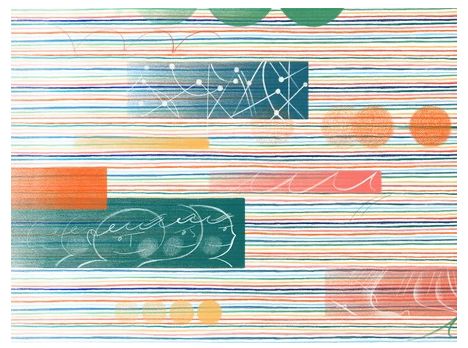
Here, as in "The Time Machine" and "The New Accelerator," the description was irresistibly cinematic, and made me wonder if the young Wells had seen, or experimented with, time-lapse photography of plants, as I had. A few years later, when I was a student at Oxford, I read William James's "Principles of Psychology," and there, in a wonderful chapter on "The Perception of Time," I found this description:
We have every reason to think that creatures may possibly differ enormously in the amounts of duration which they intuitively feel, and in the fineness of the events that may fill it. Von Baer has indulged in some interesting computations of the effect of such differences in changing the aspect of Nature. Suppose we were able, within the length of a second, to note 10,000 events distinctly, instead of barely 10, as now; if our life were then destined to hold the same number of impressions, it might be 1000 times as short. We should live less than a month, and personally know nothing of the change of seasons. If born in winter, we should believe in summer as we now believe in the heats of the Carboniferous era. The motions of organic beings would be so slow to our senses as to be inferred, not seen. The sun would stand still in the sky, the moon be almost free from change, and so on. But now reverse the hypothesis and suppose a being to get only one 1000th part of the sensations that we get in a given time, and consequently live 1000 times as long. Winters and summers will be to him like quarters of an hour. Mushrooms and the swifter-growing plants will shoot into being so rapidly as to appear instantaneous creations; annual shrubs will rise and fall from the earth like restlessly boiling-water springs; the motions of animals will be as invisible as are to us the movements of bullets and cannon-balls; the sun will scour through the sky like a meteor, leaving a fiery trail behind him, etc. That such imaginary cases (barring the superhuman longevity) may be realized somewhere in the animal kingdom, it would be rash to deny.
This was published in 1890, when Wells was a young biologist (and writer of biology texts). Could he have read James, or, for that matter, the original computations of Von Baer, from the eighteen-sixties? Indeed, one might say that a cinematographic model is implicit in all these descriptions, for the business of registering larger or smaller numbers of events in a given time is exactly what cinecameras do if they are run faster or slower than the usual twenty-four or so frames per second.
It is often said that time seems to go more quickly, the years rush by, as one grows older--either because when one is young one's days are packed with novel, exciting impressions or because as one grows older a year becomes a smaller and smaller fraction of one's life. But, if the years appear to pass more quickly, the hours and minutes do not--they are the same as they always were.
At least, they seem so to me (in my seventies), although experiments have shown that, while young people are remarkably accurate at estimating a span of three minutes by counting internally, elderly subjects apparently count more slowly, so that their perceived three minutes is closer to three and a half or four minutes. But it is still not clear that this phenomenon has anything to do with the existential or psychological feeling of time passing more quickly as one ages.







